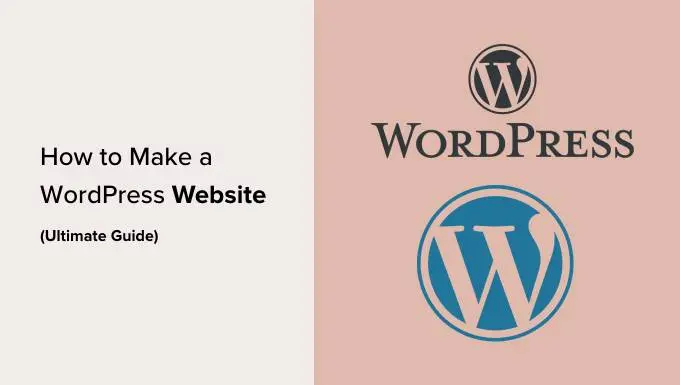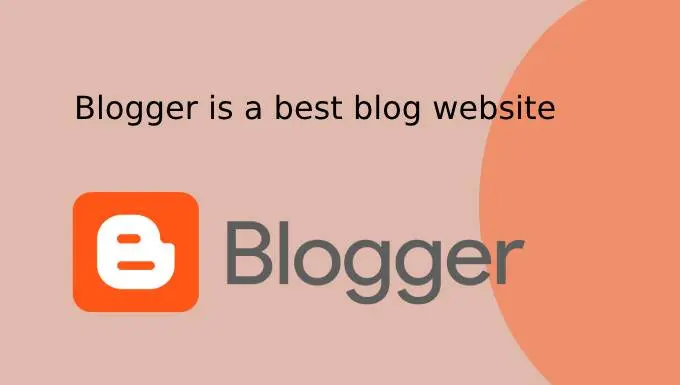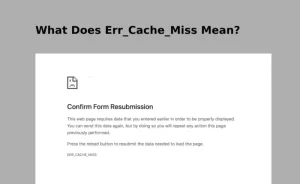Have you ever sought the best platforms for Website To Create Blog Page? Well, look no further! This blog introduction explores the most commonly used platforms which enable users to construct their best websites to create blog. Users ranging from beginners to professionals can find options on our list to build their blog from user-friendly builders and customizable templates with various features. Your blogging website is ready to elevate because you have grabbed the blogging tool for Website To Create Blog Page. See more blog.
Table of Contents
You have presented in detail a guide about building Best Websites To Create Blog with WordPress. Contact me for further clarification on WordPress or other subjects of your choice.
Your selection of an analytics tool for blog site creation should match the particular aspects you wish to achieve including customization options and user experience and target audience type. This document presents three popular blogging sites which offer unique benefits for Website To Create Blog Page.
The Best Websites To Create Blog Page Are Available At Popular Blogging

1) WordPress
The content management system (CMS) WordPress maintains its position as the most widely used platform having control over 40% of the worldwide websites. This system features adaptability together with SEO optimization benefits that allow users to create both individual blogs and large-scale enterprise websites. Website To Create Blog Page
Key Features:
WordPress provides a user-friendly CMS system that developers can modify while requiring no coding from basic users.
Themes & Plugins – 10,000+ themes and 60,000+ plugins for customization.
SEO-Optimized – Built-in SEO features + Yoast SEO plugin support.
E-Commerce Ready – WooCommerce plugin for online stores.
Why Use WordPress?
Full Control Over Website & Blog
Great for Businesses, Blogs, and E-Commerce
Huge Community & Support

2) Blogger
As a Google-owned free blogging platform Blogger provides an excellent solution for people who want to launch a blog without any experience in web development. Blogger has operated since 1999 while continuing to be a popular choice for individual bloggers. Website To Create Blog Page
Key Features:
Free Hosting & Subdomain – Get a yourblog.blogspot.com domain.
Custom Domain Support – Use your own domain (e.g., yourblog.com).
Blogger provides an editor that enables users to compose pieces and modify them and distribute them rapidly.
Why Use Blogger?
The service provides completely free features together with free hosting services.
people starting their blog will find the layout simple to operate while setup remains straightforward.
Good for Casual Blogging – Ideal for personal blogs and hobbies.
Google’s Security & Reliability – Fast and stable platform.

3) Wix
Wix serves as a widely used website development platform that enables novice users to build complete working websites through its interface. Its features include drag-and-drop functions along with templates and design flexibility which makes Wix suitable for new users and small business owners and experienced website developers. Website To Create Blog Page
Key Features:
Wix provides users with a Drag-and-Drop Builder which enables non-coders to create websites effortlessly.
More than 800 professional templates are available for users to select.
Users can connect third-party tools through the App Market feature for functionalities that include e-commerce and blogs and booking systems.
Your website becomes more visible through built-in features which enhance Search Engine Optimization abilities.
Why Use Wix?
Website creation through Wix requires no special technical expertise from users.
Design Flexibility is possible through the drag-and-drop functionality which allows users to easily make custom designs.
The platform enables people to launch their websites quickly.
E-Commerce Ready – Start an online store with ease.
4) Squarespace
The website builder Squarespace provides users with an easy interface that lets them create stunning web pages through its extensive selection of features. The website builder appeals particularly to creative professionals as well as small companies and businesses that operate online. Squarespace enables smooth website construction and administration through its interface which requires no coding experience. Website To Create Blog Page
Key Features:
The platform features a collection of professional looking responsive website formats adapted for every website need including blogs portfolios electronic stores and much more. Website To Create Blog Page
Users can operate the editor with ease using their mouse while gaining extensive power for customization.
Online businesses can leverage E-Commerce Capabilities to develop stores which offer payment processing and inventory management along with marketing resources.
Why Use Squarespace?
Online designers should choose Squarespace templates due to their excellent design-orientation capabilities.
All-in-One Solution – Hosting, domain registration, and website building all in one place.
No Coding Required – Simple for beginners but powerful enough for more advanced users.
5) Medium
Writers choose Medium as their minimalist blogging platform because it allows them to produce content that reaches readers. This platform features a basic layout and welcomes users through both large audiences and high-quality content. Medium targets content production and reader interaction over design customization because it differs from standard blogging sites. Website To Create Blog Page
Key Features:
Medium enables writers to enjoy direct access to a vast audience base that ensures natural article exposure.
Right after signing up users can start writing content without any preliminary setup procedures.
Clean & Minimalist Design – Simple, distraction-free writing environment. Website To Create Blog Page
The Partner Program through Medium enables writers to make money through reader interaction metrics.
Why Use Medium?
Writers and Thought Leaders should utilize Medium to post lengthy content and individual stories and academic texts.
The system requires no technical abilities to begin. Users need only complete easy sign-up procedures before they begin writing.
Medium users can benefit from its built-in readership which acts as a method for gaining awareness.
Holding a Medium Partner Program membership lets you make money through reader engagement.
6) Weebly
Through its intuitive website builder users can develop websites together with online stores without requiring coding experience on Weebly. Users find the drag-and-drop functionality intuitive so this platform serves well as an entry point for both novices and companies with small operations. Website To Create Blog Page
Key Features:
Build your site through the use of the drag-and-drop builder to automatically place elements on your page.
Users can operate F-Commerce through built-in tools that manage products and handle payments as well as shipping operations.
Responsive Themes – Choose from modern, mobile-friendly templates. Website To Create Blog Page
The basic search engine optimization tools included in this platform enable site optimization.
Why Use Weebly?
The platform works perfectly for upcoming web developers and small organizations interested in rapid website development through a tool-free process.
The basic solutions required for building an ecommerce store are available through Affordable E-Commerce.
Clean, Modern Templates – Ready-made designs for a professional look.
7) Ghost
Ghost functions as an open-source development platform designed exclusively to serve as a content management system for blogging purposes. This platform delivers quick performance and streamlined use of writing functions due to its simple design model. Ghost stands out because it offers specialist content management and money-making tools which benefits blogging professionals as well as journalists and publishers. Website To Create Blog Page
Key Features:
Clean, Minimalist Design – Focus on content with a distraction-free writing environment.
SEO & Speed Optimized – Built-in SEO tools and fast performance.
Ghost enables revenue generation through three different monetization options that include memberships and subscriptions and paid content features. Website To Create Blog Page
You can customize your theme through existing design templates or program your own elements using HTML/CSS code.
Why Use Ghost?
The platform excels as a professional blogging and publishing solution because it provides an elegant platform with fast performance and minimalist style.
The platform provides monetization potential benefiting subscribers who want paid or subscription-based income.
The hosting setup features open-source foundation and customization capability which provides users with greater control than standard hosted solutions.
Great for Content-Centric Websites – Perfect for personal blogs, online magazines, or publications.
8) Substack
Utilizing Substack as a newsletter platform enables creators to establish and operate their email-based content along with revenue generation features. Writers seeking email subscription connections to their audience through paid subscriptions can easily use this platform. Website To Create Blog Page
Key Features:
You can generate and distribute newsletters to email subscribers through Substack without any difficulty.
The platform permits direct monetization by charging subscribers for premium content while it also includes its own payment processing capabilities. Website To Create Blog Page
Subscriber Management lets users group their audience and deliver messages through segmented email communications.
The mailing list signup process allows you to adjust the form appearance that lets users join as subscribers.
Why Use Substack?
Creators who need to generate revenue from their content by using paid subscription options should opt for direct monetization features.
Website management and hosting become unnecessary because this platform helps writers concentrate on their writing without any complexity.
Substack enables you to build a subscriber base by letting users sign up for your mailing list and maintain personal engagement directly.
9) Typepad
Typepad serves creators who seek an uncomplicated straightforward system to share content through its blogging platform. This platform entered the market in 2003 with a user-friendly interface and adaptable customization features to support writers who want to avoid other website management tasks. Website To Create Blog Page
Key Features:
The platform features a basic editor which enables users to publish without extensive training or learning challenges.
The platform allows users to customize their templates through pre-designed themes accessible by editing with HTML/CSS.
The internal SEO tool in Typepad helps your blog achieve better search engine rankings through basic optimization features.
Integrated Analytics – Track visitor stats and post performance. Website To Create Blog Page
Why Use Typepad?
The platform provides a solution perfect for people who wish to avoid any technical setup work involving hosting or programming.
Typepad eliminates hosting challenges through their service so users can dedicate their time towards composing content.
Writers along with bloggers find it ideal because they need a platform to express their ideas without requiring complex technical configurations.
10) Joomla
Joomla enables content management through its system (CMS) which allows users to develop sites along with online applications while handling complex content-driven websites through its flexible features. The platform functions as a solution between WordPress simplicity and Drupal complexity. Website To Create Blog Page
Key Features:
Through its Flexible CMS framework users can efficiently manage content for blogs along with portfolios and e-commerce stores and forums and other types.
The CMS provides a fantastic range of template designs and supports users in generating personalized site structures with HTML/CSS coding.
Users can access Joomla’s abundant extension and plugin directory that enhances system functionality with tools like SEO features and social media integration capabilities.
The platform includes built-in functionality that enables the creation of websites presented in multiple languages.
Why Use Joomla?
The platform stands out because of its ability to meet needs of extensive websites with complex content requirements along with user management and many unique features. Website To Create Blog Page
Great for E-Commerce & Social Networking – Strong capabilities for building online stores and community-driven websites.
The platform is particularly suitable when your website targets users speaking multiple languages.
The system enables the execution of complex and customized solutions which primarily serve extensive projects.
11) Drupal
The open-source content management system Drupal offers robust capability together with versatile customization options along with powerful performance for handling high-traffic complex websites. The system finds popular use in complex deployments which need high security levels and extreme customization and scalability requirements. Website To Create Blog Page
Key Features:
The platform provides high flexibility through customization and scalability features that match requirements of websites needing complex data management or unique features.
The system comes equipped with an extensive module collection that enables users to add original features through modules including functionality such as SEO security and social media integration and e-commerce capabilities.
The platform contains a built-in tool for developing multilingual websites which benefits enterprises with international operations and worldwide customer bases.
Why Use Drupal?
Complex & Custom Websites remain the optimal choice for building advanced websites with custom functions as well as large-scale content management and complicated user access roles. Website To Create Blog Page
Enterprise-Level Features make this platform the top choice for organizations because they require high security alongside flexible scalability.
A multilingual website stands as the best option when targeting global audiences through content presentation in multiple languages.
12) Tumblr
Tumblr provides its users with both social networking features and blogging tools to distribute multimedia content and follow different people in an artistically active environment. Tumblr provides strong popularity among fan communities and artistic creators and diary writers. Website To Create Blog Page
Key Features:
Multimedia-Friendly – Supports text, images, GIFs, videos, and audio.
These features enable users to follow blogs while enabling likes and reblogging and adding comments to various posts.
Customizable Themes – Edit HTML/CSS for unique blog designs. Website To Create Blog Page
When using tags on your uploads you can find new audiences through hashtag innovation.
Why Use Tumblr?
Great for Casual & Creative Blogging
Strong Community Engagement
Easier Than WordPress
13) HubSpot
The CRM (Customer Relationship Management) platform HubSpot provides marketing and sales and customer service and content management solutions. People often use HubSpot as a tool to generate leads through automation within inbound marketing campaigns. Website To Create Blog Page
Key Features:
HubSpot CRM provides users with a cost-free solution for tracking leads contacts and deals.
The Marketing Hub tool bundle lets users perform email marketing and develop landing pages and maintain SEO and automation capabilities in addition to providing analytical reporting.
CMS Hub – Website & blog management with SEO tools and personalization.
The Sales Hub feature implements automation functionality through pipelines that work with live chat to expedite deal completion.
Why Use HubSpot?
Through its implementation of Inbound Marketing users can successfully bring in customers who turn into followers and maintain their engagement. Website To Create Blog Page
All-in-One Solution – Combines CRM, content, and automation in one platform.
Scalability – Works for startups, small businesses, and enterprises.
The content management system from HubSpot makes it easier for users to achieve improved search rankings.
14) LinkedIn
Through LinkedIn users link with professionals who can view their expertise while building their brand identity by enhancing profiles with content sharing and active engagement. The LinkedIn platform lets users enhance their industry credibility through Posts and Articles sections together with Recommendations and Endorsements which help users build credibility with their peer group and their recruitment base and client base. Website To Create Blog Page
Key Features:
A detailed professional profile which displays your skills and experience along with your achievements should be created for profile and personal branding purposes.
The platform helps users directly apply to jobs while recruiters identify their profiles and their career search receives AI suggestions.
Users of LinkedIn Learning gain access to thousands of educational courses that build up skills and professional development.
The platform provides members with two functions: Content Sharing & Engagement which enables users to distribute news and multimedia content in order to interact with professional colleagues and demonstrate expertise. Website To Create Blog Page
Why Use LinkedIn?
A wider network formation can be achieved through professional connections with industrial leaders combined with recruitment professionals and potential clients.
Showcase expertise through posts, articles, and profile endorsements.
Your career grows better through the power of attracting employers along with their collaboration prospects.
Follow industry developments by receiving insights from leaders with thought leadership capabilities.
15) Shopify Blog
Within Shopify ecommerce platform users can leverage Shopify Blog to generate website traffic and boost SEO rankings and activate customer engagement. Small e-commerce brands will find that Shopify Blog offers sufficient content marketing capabilities although it remains less prominent than other platforms including WordPress and Ghost. Website To Create Blog Page
Key Features:
SEO-Friendly – Customizable meta titles, descriptions, and URLs.
The solution enables straightforward connection between blog content and store products.
Tagging along with Categorization assists users in structuring their content to enhance user navigation.
The platform gives users control through Shopify themes to create personalized blog designs.
Why Use Shopify Blog?
E-Commerce Brands should consider LiveJournal because it enables them to write product guides along with tutorials and industry news.
The combination of SEO and Traffic Boost strategy works to bring natural shopper traffic to your eCommerce store.
Every Shopify plan includes your blog hosting at no additional expense.
16) LiveJournal
Since 1999 LiveJournal (LJ) operates as a combination social networking site and blogging platform. The platform provides mechanism for users to compose journal-type entries and participate within communal activities and maintain his/her social network. The online community on LiveJournal maintains core users in Russia and Eastern Europe even though its overall popularity has decreased. Website To Create Blog Page
Key Features:
Bloggers can use journal-style posts with privacy management tools on this platform.
Through Social Networking the platform enables users to establish relationships by making friends and sharing comments and participating in community conversations.
Communities & Groups – Participate in interest-based communities.
The interface allows users to change themes according to their individual preferences.
Why Use LiveJournal?
Using LiveJournal appeals to people who desire both the social elements of blogging with personal expression capabilities.
LiveJournal gained immense popularity among communities focused on fanfiction content (fanfiction scene was the major audience).
You would find this system superior to Medium and WordPress platforms when desiring foundational control over what readers can view.
17) Postach.io
Postach.io stands out as a blogging platform which enables users to automatically create website content through their Evernote notes. The platform provides users with an easy way to convert their notes into websites with minimum setup requirements for complex CMS management systems. Website To Create Blog Page
Key Features:
Evernote users can write new posts in the platform then tag entries as published to make them appear live on the site.
Users need not write code since they simply need to write their content and synchronize across platforms.
The platform provides two options to choose either ready-made templates or to modify the CSS through manual editing.
Multi-Author Support – Collaborate with others on the same blog.
Markdown Support – Use Markdown for formatting posts.
Why Use Postach.io?
Users who manage notes through Evernote will experience total blogging convenience with this method.
This system enables minimalist blogging through its dedicated focus on writing tasks.
Great for Journals, Personal Blogs, and Notes Sharing.
18) Codepen
Users employ CodePen as their primary online interface to compose front-end web projects and display HTML CSS and JavaScript code blocks dubbed “Pens” before shared on the web. This free tool works perfectly well for hypothetical development tests while promoting education and group web development efforts. Website To Create Blog Page
Key Features:
The system displays immediate updates while you develop code.
HTML, CSS, JavaScript Support: Includes preprocessors like Pug, Sass, and Babel.
Collections & Forking: Save and remix Pens from other developers.
The Collaboration Mode enables users to team up with each other in real time through a Pro membership.
Storage facilities enable users to distribute their work using links and iframes.
Why Use CodePen?
Quick Prototyping lets developers create and check their UI design concepts and animations in a short time span.
The site enables both novice and experienced developers to learn and conduct experiments.
The platform features a community-centered structure which shows users innovative Pens motivating their development projects.
Portfolio Showcase – Share your work easily.
19) SilverStripe
The open-source solution SilverStripe exists as both a content management system (CMS) and framework which developers build with PHP programming language. The modular PHP-based system provides users with security and functionality along with ease of use which attracts developers to construct both business sites and custom web applications and government portals. Website To Create Blog Page
Key Features:
Flexible & Modular: Allows full customization of templates and functionality.
Digital development requires the MVC Framework (SilverStripe Framework) as a developer tool which offers a framework for building scalable applications.
Web content management becomes easier with a friendly administrative section for handling content.
The system maintains robust entry restrictions with its ongoing security maintenance protocols.
A versioning feature with rollback function provides users with a system to track document changes while enabling easy retroactive changes.
Multi-Language Support: Great for global websites.
Extensible: Supports modules, themes, and third-party integrations.
Why Use SilverStripe?
Developers who require complete management of their website structure will find SilverStripe to be optimal for usage.
More flexible than WordPress while still offering a user-friendly CMS.
The system provides robust security features which qualify it for use in business environments as well as government buildings.
20) Jekyll
The Jekyll static site generator exists to create websites that enable users to develop fast and secure minimalistic platforms. Such websites work best for blogs together with portfolios and documentation sites. Here’s an overview of Jekyll: Website To Create Blog Page
Key Features:
Converts Markdown and HTML into static websites.
Uses the Liquid templating engine.
Supports themes and plugins.
Works seamlessly with GitHub Pages.
The application stores content in Markdown files without using any database system.
Why Use Jekyll?
The system operates without a back end resulting in fast and secure website operation.
The platform features customizable structures that operate through Liquid templates.
Version Control: Works well with Git and GitHub.
GitHub Pages enables simple web hosting with its free service options.
Conclusion
Building WordPress blog posts stands as a standard procedure for which the provided guidance satisfied you. Any questions related to blog post design or WordPress elements can be directed to me and I will happily help you with further details. Website To Create Blog Page
The decision between platforms should be made based on user experience quality along with customization flexibility along with pricing structure and search engine optimization capabilities together with your target audience type. Your blog platform should match your future objectives since your decision could be shaped by your long-term plans. Website To Create Blog Page




